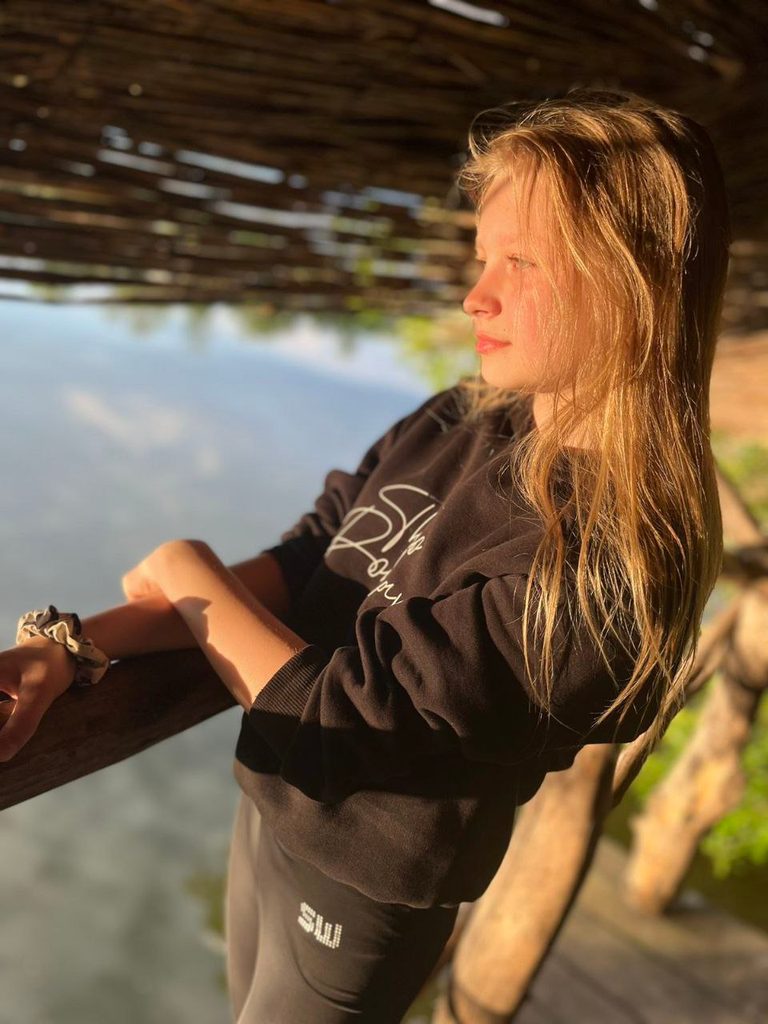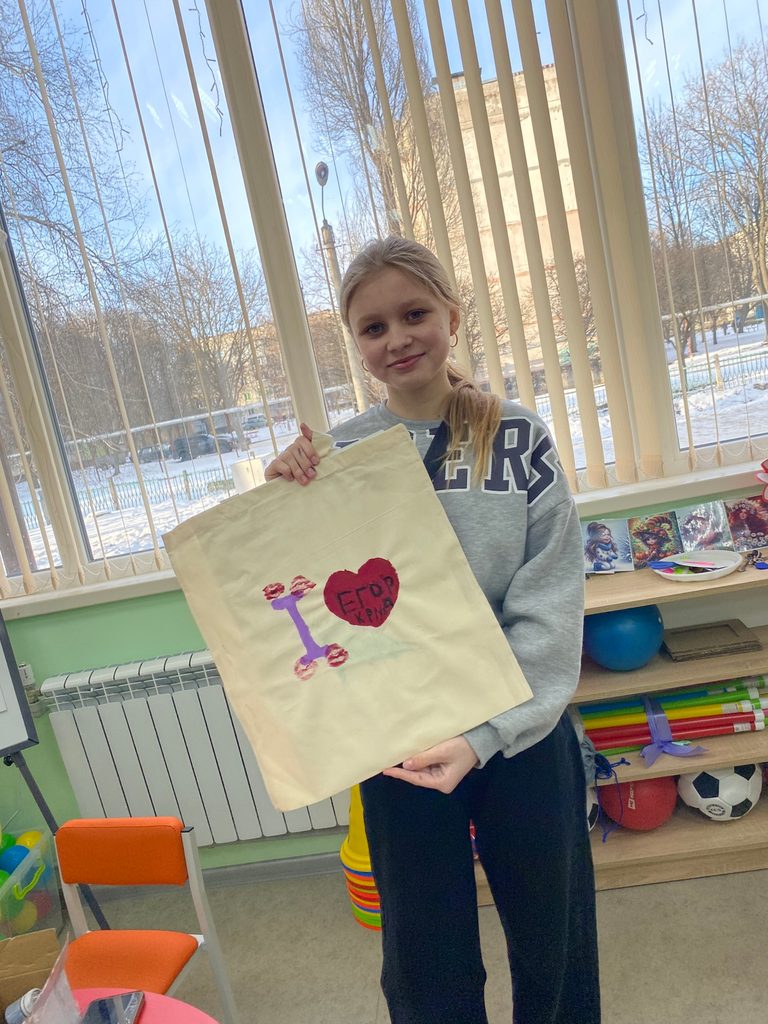12-year-old’s resilience amid the war in Ukraine
The majority of children and young people study online, at least 600,000 children are forced to continue their distance learning
Access to face-to-face education remains a particular challenge in areas close to the frontline and along the border. This leaves children like Polina with limited learning opportunities, further exacerbating the psychological and emotional toll on young people.

Polina, 12, from Kharkiv region, lives in a town close to the frontline of the ongoing war in Ukraine. The conflict has had a profound impact on her education, mental wellbeing and aspirations for the future. Due to frequent air raids and missile strikes, most of Polina’s classes have moved online, making it difficult for her to study properly, especially during power cuts and blackouts, and limiting social contact with her peers. “I miss the regular, in-person lessons. Of course, when you study online, you can be less stressed, you can get up later, but I like going to school better. I even miss going to the blackboard. I miss meeting my friends there.“
Restoring education and emotional well-being
With few functional school shelters and the destruction of the local Palace of Children and Youth (a state institution providing out-of-school education) in the city, extracurricular activities have been severely disrupted.
With Plan International’s support, Polina now attends a Safe Learning Space (SLS), which provides both educational and psychosocial support to children in the area. Services include speech therapy, catch-up classes in subjects such as maths and English, and psychosocial support sessions to help children cope with the trauma of war.

“Every day I go there to play games with my friends, draw, and take catch-up math lessons that really help me learn better,” shares Polina.
For Polina, the psychological impact of the war has been immense. The constant fear and uncertainty weigh heavily on children living in conflict zones.
“Now I’ve got used to the war. When the war started, there was heavy shelling and missile attacks and me and my younger brother, he is 6 now, found it very scary. We covered ourselves with pillows and blankets,” recalls Polina.
Polina finds solace in talking to a psychologist in SLS named Natalia for helping her cope with the emotional toll of the war. She finds comfort in speaking to Natalia when struggles with personal issues, whether related to her friends or feelings she can’t share with her family.
“Now I’ve got used to the war. When the war started, there was heavy shelling and missile attacks and me and my younger brother, he is six now, found it very scary. We covered ourselves with pillows and blankets.”
Polina
“Natalia helps me whenever I have something on my mind, like problems with friends or when something hurts me that I can’t talk to my mum about. It’s a safe space for me,” says Polina.
Despite the difficulties, Polina continues to pursue her dreams. She aspires to become a photographer, hoping that this career will allow her to see the world from a different perspective.
“I also dream for all my beloved to be safe,” Polina adds.
Her hopes are shaped by the loss of her grandfather and the continued disappearance of her godfather, but she holds on to the belief that one day the war will end and her dreams can flourish.
The Safe Learning Space
For the first month, since its establishment in December 2024, the Safe Learning Space (SLS) has reached 398 children through educational and psychosocial support services, including mobile team activities. The space was created as part of the “Emergency Multi-sectoral Assistance for Affected Populations in Remote and Rural Regions of Eastern and Southern Ukraine” project – a partnership between Plan International and local NGO ISTOK, funded by the Italian Agency for Development Cooperation (AICS).
Prior to the renovation, the site served as a neglected workshop classroom. Thanks to the combined efforts, the space was completely renovated in just 1.5 months, providing a safe and functional learning environment for students from grades 1 to 11.
Nowadays it is crucial to focus on the mental health needs of those in the frontline regions and other affected areas, and to ensure that children and families receive the support and services they urgently need.
Due to safe learning spaces, maintaining educational services while the conflict is ongoing, we help to ensure that children’s right to education safety, and a brighter future in Ukraine are not lost in the chaos of war.
In Ukraine education remains severely disrupted, with 3,798 educational facilities damaged by bombing and shelling, including 365 that were completely destroyed, leaving children with limited learning opportunities.


